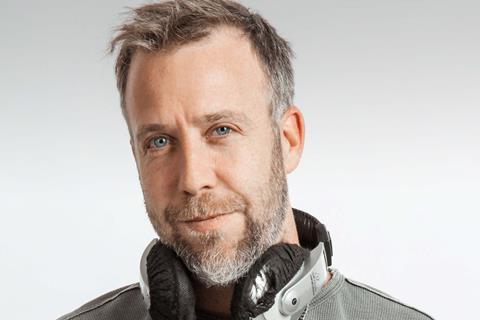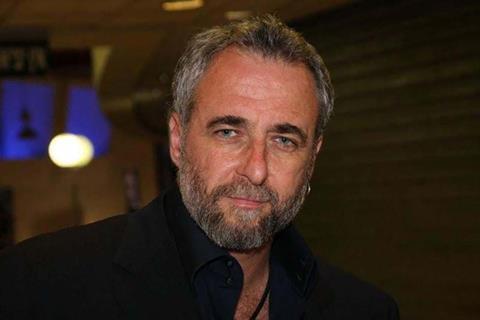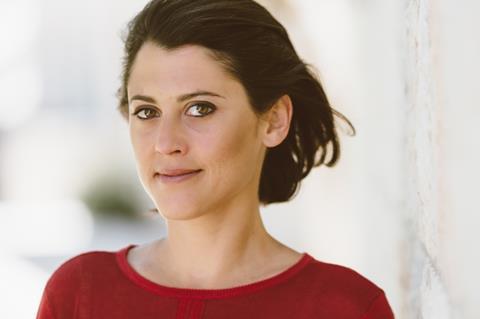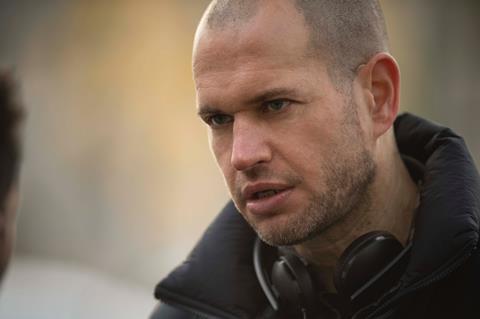As protests continue against the right-wing government’s efforts to weaken Israel’s judiciary, directors Ari Folman, Nadav Lapid and other leading Israeli film professionals consider what it could mean for their industry.

Israeli state funding for cinema runs on a five-year cycle, with the next renewal due before the end of 2023. Ahead of that as-yet-undetermined renewal date, industry stakeholders have expressed concerns the film sector could see a similar tightening of regulations to that which is happening in television. The changes are taking place in a country riven by protests against judicial reforms from the right-wing government, with film professionals among the millions of Israelis joining the pro-democracy movement.
“In the TV industry, the minister of communications [Shlomo Karhi] is trying to do bad things for our industry,” suggests Adar Shafran, producer at Firma Films and chairman of the Israeli TV and Film Producers Association (IPAC). Most recently these include a government media bill that has resulted in the Israel TV Channels Forum, an unprecedented union of Israel’s major TV networks in opposition. Reshet 13, Keshet 12 and public broadcaster Kan issued a statement on August 16 asserting that the media bill makes “the takeover of the media market the government’s next target” after the judicial reforms, and that they will “operate in emergency mode” to prevent it.

In his IPAC role, Shafran represents the interests of all Israeli television and film producers. He “doesn’t see any change” to the film sector, with the five state-backed film funds continuing to operate as normal.
“But like everything in Israel right now, the future doesn’t look so good,” says Shafran. “Freedom of speech is the most important thing. Even the fact that we’re talking about it is killing the arts, because a creator will know that, and think it’s not good to say bad things about our government. But this is what art should do — it should criticise everything without any fear. If they have even a little fear, it changes the course of art. It’s very dangerous.”
“The biggest threat is not the government — it’s self-censorship,” says Ari Folman, director of 2008’s Oscar- and Bafta-nominated Waltz With Bashir, a docudrama about the 1982 Lebanon war. “When you’re writing your first film, if you know that in the current climate your chances to make a political movie are decreasing every year, you will probably choose something else.”

The current government, a coalition of six conservative and religious parties headed by prime minister Benjamin Netanyahu of the Likud party, “doesn’t understand what [state] culture support means,” says Folman. “They believe that culture should serve a national agenda.”
Folman cites the negation of funding for any projects that criticise the Israel Defense Forces, the country’s national military, and claims that he has heard government representatives say they would not support Waltz With Bashir were it made today. “Who decides what is the shaming of an Israeli soldier?” asks the filmmaker.
Shafran has met with Karhi and his team “several times” through his IPAC position, and is unimpressed with their care for Israeli culture. “We were trying to tell them our side but it’s like you’re talking to someone who doesn’t listen at all,” says Shafran. “We were trying to tell them that if they keep going [this way], there will be no Hebrew culture. It was a waste of time.”
As CEO of the Israel Film Fund (IFF) since April 2022, Noa Regev oversees the distribution of approximately 24% of the country’s annual budget for cinema, at slightly over $6m-per-year. It is one of the two biggest funds, alongside the Rabinovich Foundation’s Israel Cinema Project; together the pair receive around 47% of total state cinema funding. The other three funds are The New Fund for Cinema and Television, the Makor Foundation for Israeli Films and the Gesher Multicultural Film Fund.

“Public funding has played a crucial role in the success of Israeli cinema worldwide,” says Regev, who was CEO of the Jerusalem Cinematheque and Jerusalem Film Festival for a decade before taking up the IFF post.
“A key factor behind this achievement is the recognition by public funding institutions of the necessity to take risks in filmmaking. This support system actively encourages creativity and embraces a professional approach to cinematic language, transcending conventional narrative or thematic boundaries. It is essential to sustain an environment that empowers filmmakers to explore and push the boundaries of artistic expression freely.” Regev hopes the new five-year plan “will preserve our ability to support films according to the same criteria”.
Artistic freedom
Nadav Lapid is one of Israel’s most acclaimed contemporary filmmakers, winning major prizes at the Berlinale and Locarno, and appearing on festival juries including Cannes Critics’ Week in 2016. “For years Israel was an anomaly,” says the filmmaker regarding artistic freedom. “Israeli cinema profited from an impressive and rare freedom for years — in parallel to the fact the country was doing terrible atrocities.
“Usually, states that are doing things similar to Israel try to hide it; they feel shame and restrict cinema,” continues Lapid. “In Israel, it barely happened.”

However, he believes restrictions are on the rise. “What happened in the last years — it’s terrible. We should fight against it. The question is, is it important enough for Israeli filmmakers, for the heads of the film funds, to tell the truth in their movies, and to fight for this truth?”
Lapid cites Iranian contemporaries including Mohammad Rasoulof and Jafar Panahi as examples of filmmakers who “were ready to pay a severe personal price for their determination to talk about what should be talked about”.
In 2019, then-culture minister Miri Regev established three regional funds in addition to the national funds, in a move that drew criticism from the country’s film sector. One of these, the Samaria Film Fund, distributes money only to Jewish settlers who reside and shoot their projects in the disputed West Bank territory. More than 250 Israeli filmmakers, including Folman and Lapid, signed a letter published in September last year, declaring they would not collaborate with the Samaria fund, which they accused of “whitewashing the Occupation”.
There is expectation in some quarters that the government will increase it backing for the Samaria fund when it unveils the new five-year plan.
“We [Israel Film Fund] are not a political fund,” notes Regev. “We are a professional fund, and the money should always be utilised by funds to support filmmaking on a wide spectrum, encompassing everything from mainstream to arthouse, from social-political to personal, and from classic narrative films to cutting-edge innovative films.”
Balancing act

Such disputes are distinct from the actual matter of making films; many Israeli filmmakers manage to balance both remarkably well. Shafran’s debut directing feature Running On Sand is nominated for best film at the country’s Ophir awards — with the winner of that category becoming Israel’s Oscar submission — and he is in Haifa shooting a comedy with two longtime artist collaborators. He has no intention of leaving the country, despite the troubles for his work. “I will stay here and fight. I’m not abandoning the ship. This is my duty as the chairman of IPAC. Most of our schedule is about defending Israeli culture.”
Folman has two features in the works: an Israeli love story set in 1973 during the Yom Kippur war called Thousand Yard Stare, which he hopes to film in spring 2024; and Death And The Penguin, an adaptation of Ukrainian author Andrey Kurkov’s novel that will be an international co-production and has been adjusted to take in Ukraine’s recent invasion. “If I wanted to leave [Israel], I would have left 15 years ago,” says the director, bullishly. However, he believes future generations will not stay — including his son Liyan Folman, a second-year film student at Jerusalem’s Sam Spiegel Film School. “I think about him a lot. All three of my kids have no intentions [of staying]. They want to leave as soon as possible.”
Lapid made that leap over two decades ago in his early twenties when he moved to Paris, returning briefly to study at the Sam Spiegel school. He has continued to film in his homeland, including parts of 2019 Golden Bear winner Synonyms, and his next feature Yes!, a France-Israel co-production about a man who decides to say ‘yes’ to everything.
“I want to believe it’s the last movie I will shoot in Israel,” says Lapid of the feature, which is slated for production in 2024 with IFF backing. “Intelligent and kind people” close to him tried to convince him to shoot in Europe or the US, which he believes would also have benefited Yes! financially. He did not consider it, as Tel Aviv and the Hebrew language are inherent in the script and main character. “But maybe it’s for the last time,” adds the director.
Film as barricades
Folman, Lapid and Shafran have all been joining the protests against the judicial reforms, with millions of Israelis taking to the streets since the regular Saturday gatherings began at the start of 2023. In Lapid’s case, he has made time amid a hectic 10-day visit while casting for Yes!.
“My hope is that these demonstrations will not only attain the original aim, but will serve as a tool to finally open the eyes of Israelis, not only to look at the injustice of others but also of ourselves,” says the director, referencing the conflict with Palestine.
While other producers have told Screen International they are spending “70%-80%” of their time at the protests, Regev believes there is no detrimental effect on the Israeli industry. “It’s the contrary — I hope it will stimulate more filmmakers to create new films,” she says. That is true in the case of Folman, who is shooting footage of the demonstrations for a documentary about planned countries of Jewish people worldwide that never came to fruition. “You cannot overestimate what’s happening now in terms of resistance,” says Folman of the protests. “It’s really heartwarming.”
Regev believes the country’s current conflict has been predicted by the film community, through titles such as Dani Rosenberg’s Locarno 2023 premiere The Vanishing Soldier and David Volach’s comedy-drama Daniel Auerbach, winner of best Israeli feature at Jerusalem Film Festival in July. “We have many films reflecting on this situation,” she says.
“I can imagine that restrictions [on filmmaking] will go higher,” says Lapid, who hopes any such change would be an awakening for the Israeli film community. “Israeli filmmakers and film funds should understand they are not in harmony with the Israeli regime. They shouldn’t be pets of the minister of culture. Here comes the government saying, ‘We will accept you as long as you say what we want you to say.’
“It’s an important moment when Israeli filmmakers and film funds should assume this new consciousness to say, ‘Okay, now we’re going to make films in the form of barricades.’”






![The Brightest SunScreen[Courtesy HKIFF]](https://d1nslcd7m2225b.cloudfront.net/Pictures/274x183/3/5/0/1448350_thebrightestsunscreencourtesyhkiff_312678.jpg)


















No comments yet